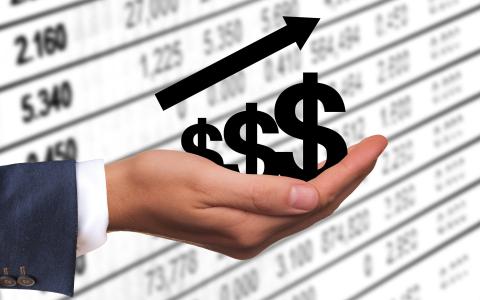
(Yahoo! Finance) - Executives from the country’s biggest banks sounded optimistic Tuesday as they assessed the impact of a new Trump administration, the state of the US economy in 2025, and more interest rate cuts expected from the Federal Reserve.
JPMorgan Chase (JPM) revised a key revenue source higher on Tuesday, with its consumer chief Marianne Lake saying at a Goldman Sachs financial services conference that net interest income will be $2 billion more than previously expected in 2025 "purely because of the rate outlook."
Lake also said investment banking fees in the fourth quarter of this year will be up 45% from a year ago as a prolonged dealmaking slump comes to an end. Trading revenue is expected to be up in the "mid-teens or a little better year-on-year" for the same period.
"There's reasons to be optimistic about 2025," Lake told Yahoo Finance.
She wasn’t the only one who sounded more bullish Tuesday.
Citigroup (C) CFO Mark Mason said his bank will be on the "higher end" of its full-year revenue guidance for 2024 of $80 billion to $81 billion. The New York lending giant is also anticipating a 25% to 30% jump in investment banking fees in the fourth quarter, while trading revenue is also expected to rise.
"Knock wood or on something," Mason said at the Goldman conference on Tuesday. "So that feels very good.”
PNC (PNC) CEO Bill Demchak said he just put together a plan for his board that was "as bullish as anything I’ve ever seen."
"I think we are in a very good environment for banks," he added, noting that he is seeing "some amped-up energy across corporate America that we hope will play out next year."
The exuberance caps a great year for the largest US lenders thanks to the economy's resilience during a period of elevated interest rates and a rebound in their investment banking and trading operations.
Since the election, the stocks of big banks including Citigroup and Goldman Sachs have risen between 12% and 13% as of Tuesday. JPMorgan Chase has risen 10%, while PNC's stock is up 8%.
The hope is next year could be even better if lending and Wall Street dealmaking churn higher while a new Republican administration loosens some rules for big banks and applies more leniency in approving the sort of corporate mergers that produce big profits for Wall Street giants.
What banks are hoping is that a new administration would also loosen a new set of controversial capital rules proposed by top bank regulators that would require lenders to set aside greater buffers for future losses.
The requirements are based on an international set of capital requirements known as Basel III imposed in the decade following the 2008 financial crisis.
Banks have been fighting this US proposal for the last year in an aggressive public campaign and even dropped hints about suing regulators if they don’t get their way.
They won a big victory in September when some regulators said they would water down those requirements. But not all regulators appear to be on board with that plan, putting the final version in doubt.
PNC’s Bill Demchak said he expects the administration to eliminate the "more frivolous lawsuits and charges and changes to fees," but he said it's too soon to know if the capital proposal becomes more favorable.
"I think people are a little bit too excited they are just going to let everybody run free here," Demchak said. "I don’t see that at all."
Trump said little on the campaign trail about how he wants regulators to oversee the sector. And it isn't yet clear what the net impact of Trump's wider economic agenda could mean for the industry.
The worry is that the president-elect’s key objectives of raising tariffs, lowering taxes, and deporting undocumented immigrants could raise interest rates and potentially reawaken rising inflation.
"I do think that we've gone from political uncertainty to policy uncertainty," JPMorgan Chase’s Lake told Yahoo Finance.
She is not necessarily expecting wholesale changes to bank regulation, either.
"We're talking about neutral to less bad," Lake said. "I'm not expecting there to be deregulation, per se."
By David Hollerith - Senior Reporter



